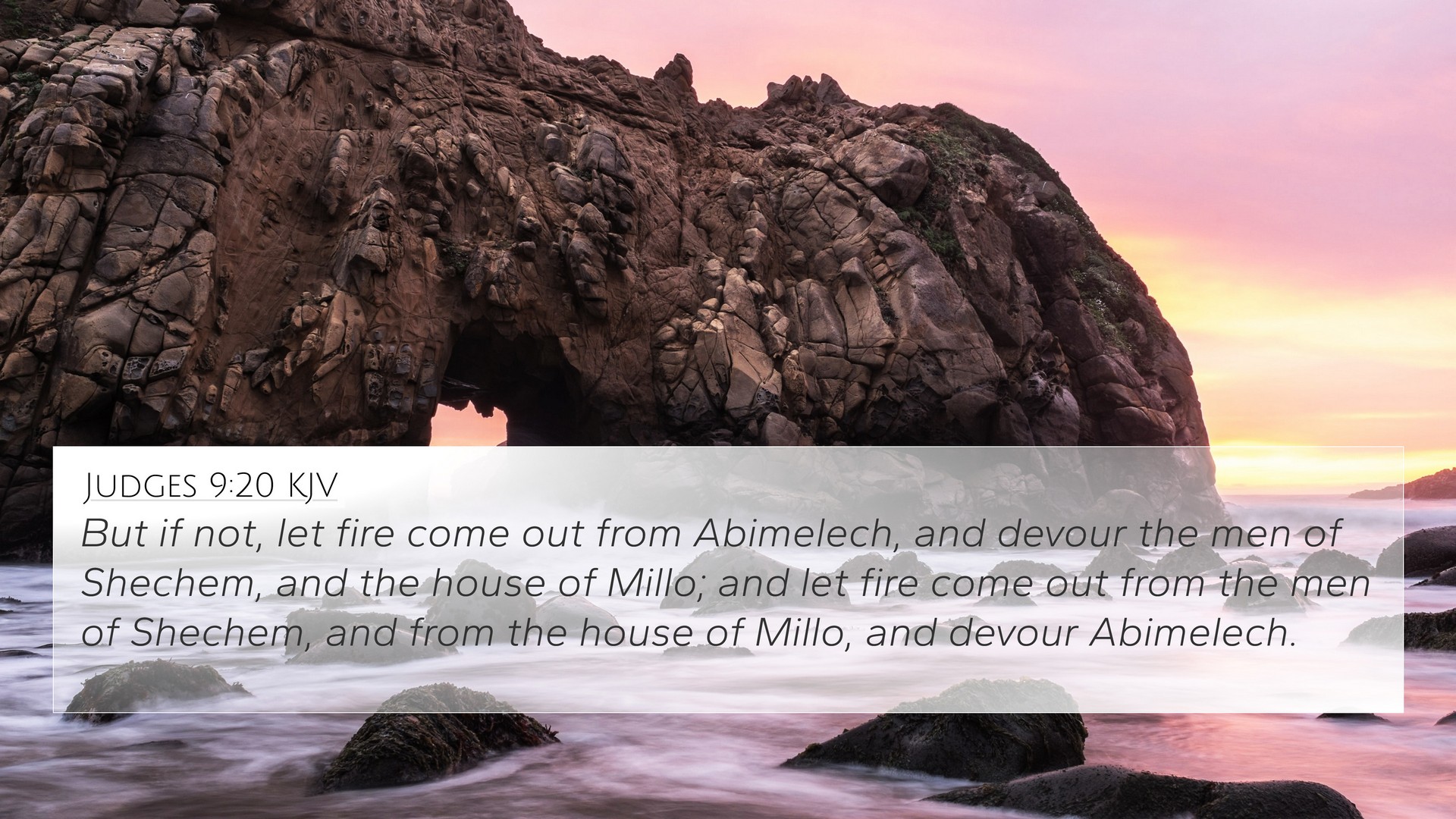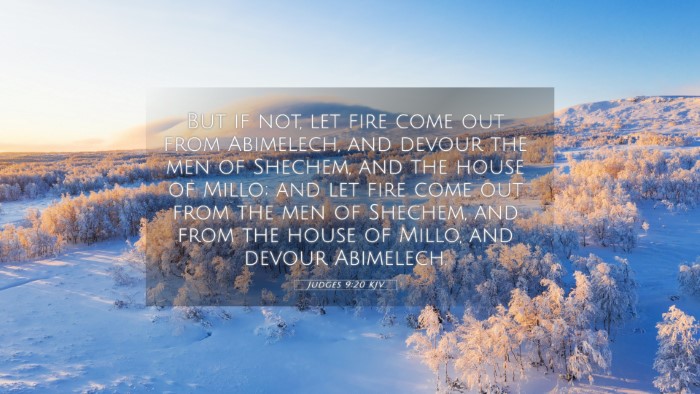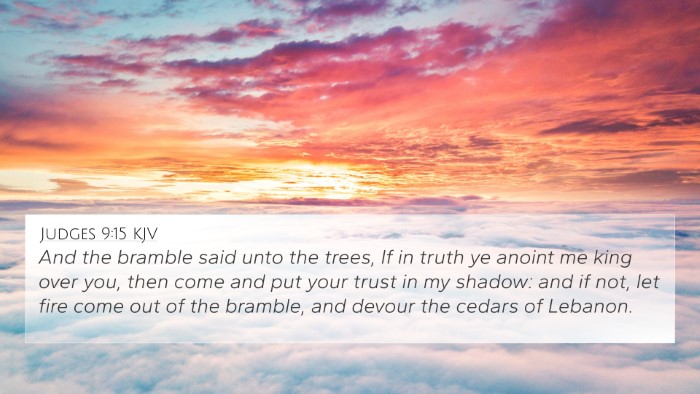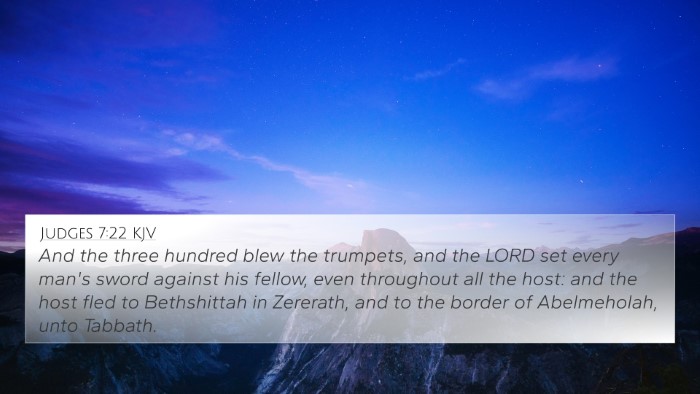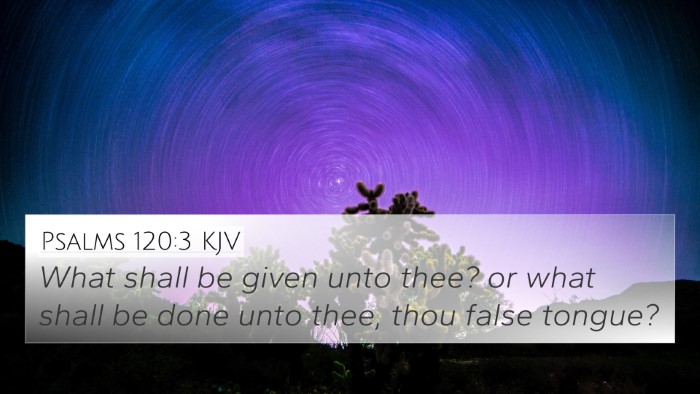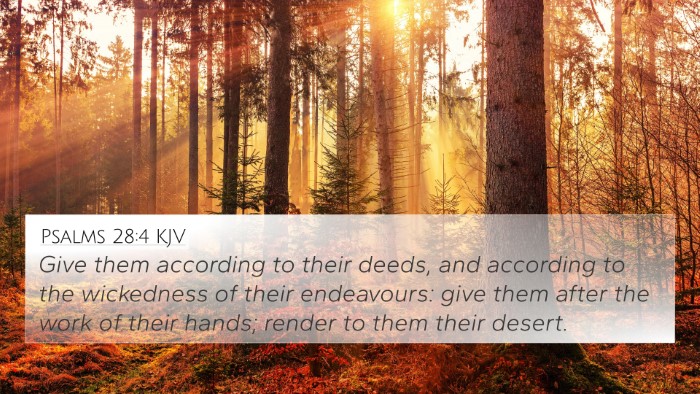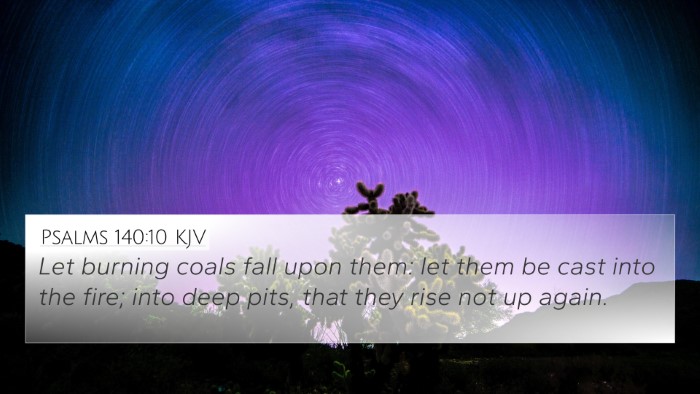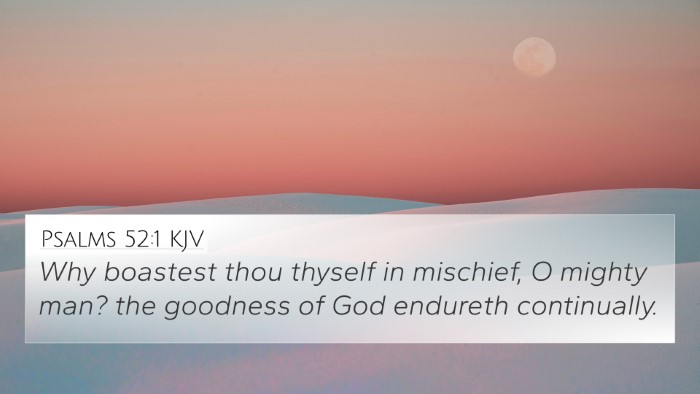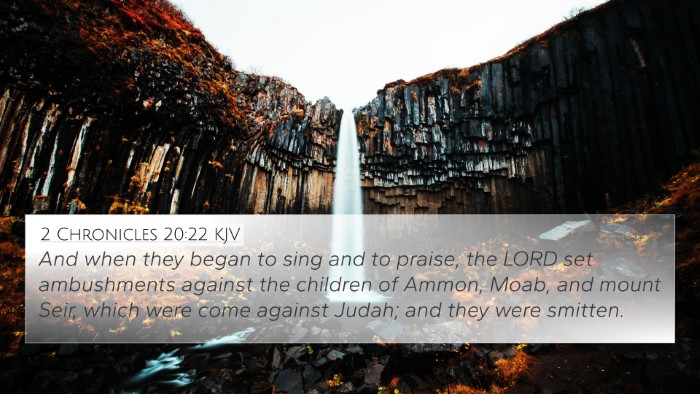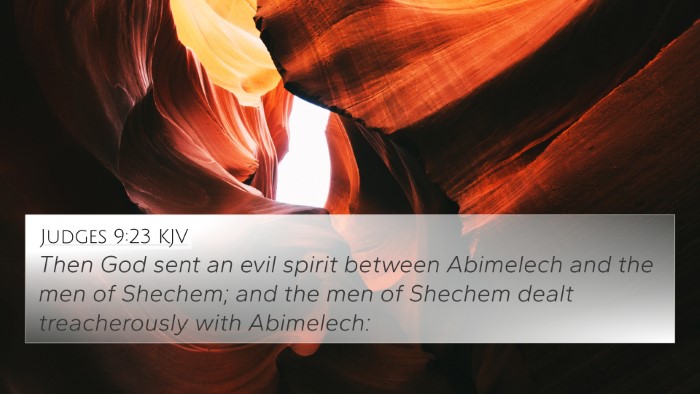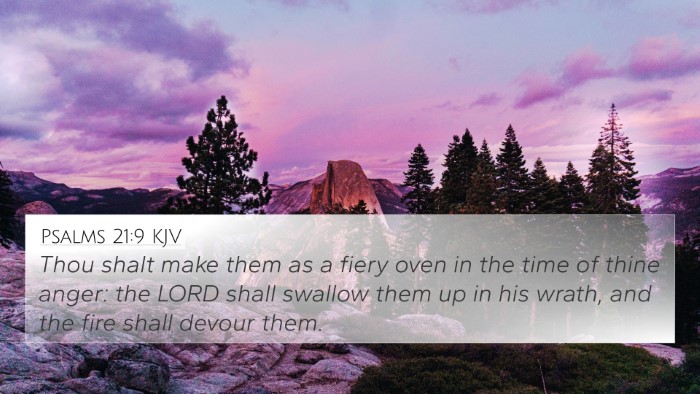Understanding Judges 9:20
The verse in Judges 9:20 reads: "But if not, let fire come out from Abimelech and devour the men of Shechem and the house of Millo; and let fire come out from the men of Shechem and from the house of Millo, and devour Abimelech." This statement is a part of a curse pronounced by Jotham, the youngest son of Gideon, after the treachery of the Shechemites in their support of Abimelech, Gideon's son by a concubine.
Contextual Analysis
The context of this verse is crucial as it depicts the aftermath of Abimelech's rise to power through deceit and murder, having killed all his brothers except Jotham. This verse functions as a strong ethical warning about the consequences of betrayal and ambition.
- Jotham's Parable: Jotham tells a fable about trees seeking a king, which highlights the folly of choosing a ruler who does not have the people's best interests at heart. This can be compared to the wisdom literature found in books such as Proverbs 1:8-19, which warns against the allure of violence and deceit.
- The Theme of Divine Judgment: Jotham’s curse reflects a theme seen throughout Scripture where God judges treachery and rebellion. This theme can be linked to Galatians 6:7, which states, "Do not be deceived: God is not mocked, for whatever one sows, that will he also reap."
- God's Sovereignty: The outcomes Jotham predicts reveals God’s ultimate control over human affairs, reminiscent of the sovereignty of God displayed in Psalm 75:7, which affirms that it is God who judges and upholds justice.
Thematic Connections
Judges 9:20 showcases themes of betrayal, justice, and divine sovereignty. An analysis of these themes can be seen in other Scriptures:
- 2 Samuel 16:10: David, faced with betrayal, recognizes God's sovereignty in allowing Shimei to curse him.
- Proverbs 12:21: "No ill befalls the righteous," suggesting that while treachery may be present, ultimately, righteousness prevails under God’s guidance.
- Matthew 26:24: Jesus spoke of Judas Iscariot’s betrayal, reinforcing the idea of judgment on those who turn against God's anointed.
- Isaiah 59:15: The verse underscores how justice is turned back, reflecting the situation in Shechem where loyalty was replaced by betrayal.
- Revelation 6:10: The martyrs cry out for justice, resonating with Jotham's call for divine retribution.
- Psalms 7:16: "His mischief returneth upon his own head," further emphasizing the biblical principle of punishment fitting the crime.
Cross References for Further Study
Here are some key cross-references that help expand understanding and thematic connections regarding Judges 9:20:
- Exodus 22:24: God's covenantal justice and the importance of fair dealings among His people.
- 1 Kings 2:32-33: The fate of Joab as he faces the consequences of his own treachery mirrors Jotham’s curse.
- Acts 1:18-20: Judas’s death and its direct reference to Old Testament curses illustrate how the pattern of betrayal leads to dire consequences.
- Romans 12:19: "Vengeance is mine; I will repay," reflecting the assurance that God will judge evil.
Conclusion
Judges 9:20 serves as a powerful reminder of the consequences of betrayal and the divine judgment that follows such acts. The interconnectedness of biblical narratives reveals a consistent pattern of God’s justice and sovereignty throughout the Scriptures. Exploring these cross-references provides deeper insights into the Biblical message concerning leadership, moral choices, and divine retribution.
